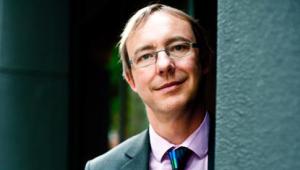31 October 2008
By Tash Shifrin
Economists have raised questions over the government's plan to bring borrowing back to 'sustainable' levels after a Keynesian boost in spending to lift the economy.
Chancellor Alistair Darling pledged to respond to the worsening economic crisis by 'supporting the economy now and maintaining public investment while at the same time ensuring that we live within our means in the medium term'.
Giving the annual Mais lecture at Cass Business School on October 29, the chancellor finally ditched the government's self-imposed fiscal rules, in a move that had been predicted by economists for months.
Figures released earlier in October by the Office for National Statistics showed that debt had already burst through the ceiling of 40% of gross domestic product set in the rules with the nationalisation of Northern Rock taken into account.
Darling's move had also been widely trailed ahead of the original date for the lecture, which was postponed for three weeks when the UK banking crisis erupted.
But Darling attributed the scrapping of the fiscal rules to 'unprecedented turbulence in the world economy'. He quoted the economist John Maynard Keynes, saying: 'When the facts change, I change my mind.'
The chancellor argued: 'To apply the fiscal rules in a rigid manner today would be perverse. We would have to take money out of the economy, exacerbating an already difficult situation.
'These are extraordinary times. The economy is facing unprecedented global shocks, and we need a new approach that is fit for these new times,' he said. 'I will set out plans at the Pre-Budget Report that demonstrate our commitment to keeping the public finances on a sustainable path.'
But Jonathan Loynes, chief European economist at analysts Capital Economics, warned that bringing borrowing levels down again would be achievable only in the longer term.
Borrowing would remain 'very high and still rising over the next five years'. Loynes added: 'I think this is a job for the longer term.'
Gemma Tetlow, senior research economist at the Institute for Fiscal Studies, said the chancellor's speech had left questions unanswered.
'The government certainly still needs to set out clear medium-term plans for the public finances,' she said.
'What they will need to do if those plans are to be credible to the general public is to comment on the failure of the existing fiscal framework.' Such an acknowledgment was 'lacking' in Darling's speech, although its problems pre-dated the current economic crisis, she said.
Instead, the chancellor argued that the rules introduced in 1997 had allowed the government to triple public investment and reduce debt 'to one of the lowest levels among the world's major economies'. He claimed: 'We met the fiscal rules over the last cycle.'
But Darling omitted to say if any new rules would replace the abandoned fiscal framework, leaving the question open in advance of his Pre-Budget Report next month.
Peter Holmes, reader in economics at the University of Sussex and an advocate of Keynesian economics, urged the government to 'throw away the borrowing limits and spend whatever's necessary' to boost the economy. 'There has got to be a limit but it's way above where it is now,' he added, pointing out that Italy and Belgium had raised borrowing to 120% of GDP 'but managed to bring it back down again'.
Fixed ceilings such as the 40% borrowing limit were 'for cosmetic purposes', Holmes argued. 'I would be happy for the specific rules to go,' he said. Instead, the government should bear in mind the 'unknown limit that relates to the capital markets' willingness to hold sterling debt'.
Opposition politicians slammed Darling's speech. Shadow chancellor George Osborne said the speech had 'achieved the worst of both worlds, adding: 'He scrapped the fiscal rules that Gordon Brown based his reputation on, but put absolutely nothing in their place.'
Liberal Democrat Treasury spokesman Vince Cable said: 'During a recession it is inevitable that the budget deficit will increase. However, it is entirely wrong for the government to assume that the economy should be stimulated by yet more public spending rather than tax cuts, particularly for the low-paid.'
In his speech Darling also pledged that the National Audit Office would audit the government's assessment of the economic cycle – which he said new data showed had ended in the second half of 2006 – in time for the PBR.
PFoct2008


















